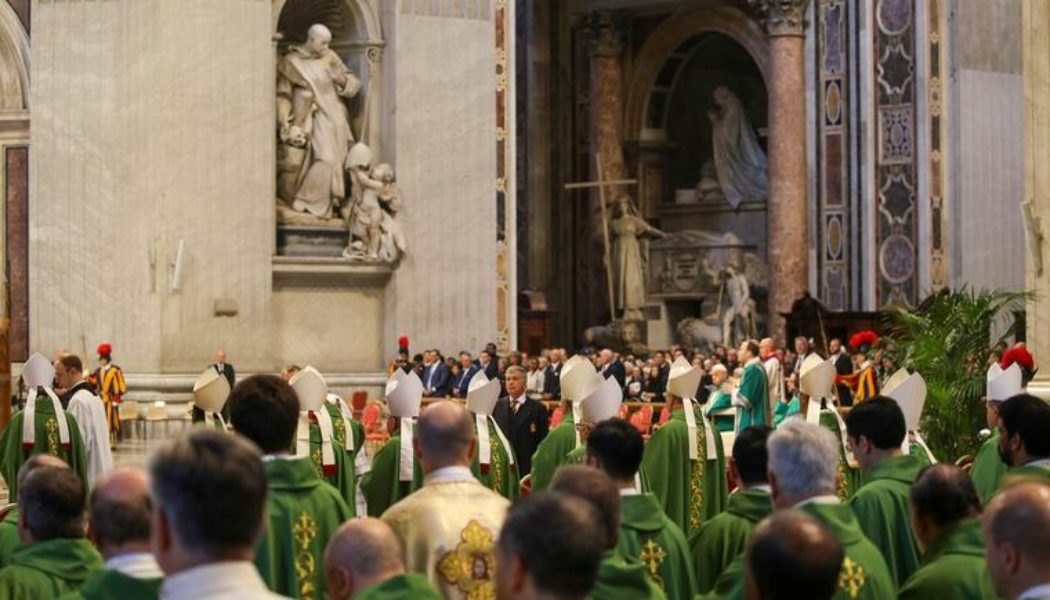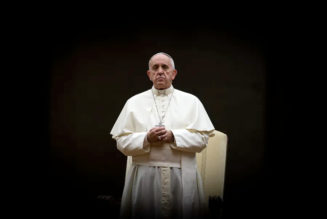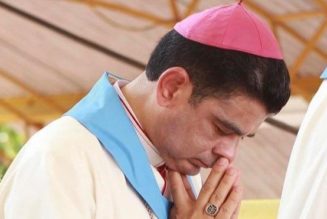
When the final document of the Synod on Synodality’s was confirmed on Oct. 26, it emphasized that the possibility of women deacons remains unsettled.
“The question of women’s access to diaconal ministry remains open,” reads the document, which was expressly approved by Pope Francis after each of its 155 paragraphs were affirmed by 355 voting members. “This discernment needs to continue.”
But that language wasn’t included in the initial draft that members of the monthlong assembly were presented with earlier in the week.
In fact, according to a copy of the draft obtained by the Register, there was no mention of the possibility of women deacons at all.
The language’s last-minute insertion may be an indication of why the paragraph in question received significant push-back from synod delegates in the final vote, with a full 27% (97 out of 355) voting against it. The number of “no” votes wasn’t enough to reach the one-thirds threshold required to strike the paragraph from the final document, but it came far closer than any other paragraph.
The change is just one indication of how the draft, which was first received by synod members on Oct. 21, was altered in several small, but sometimes significant ways.
1,000 Amendments
While some progressive Catholics expressed disappointment with the Synod in its final week, synod delegates cautioned that the final document could still undergo big changes via amendments.
According to organizers, 1,000 amendments to the draft were submitted by delegates, 900 of which were approved by small group tables while another 100 were submitted by individuals. The amendments were submitted to a team of writers ahead of an Oct. 23 deadline, and then were incorporated into the final version, which was presented to synod delegates on the morning of Oct. 26 ahead of the evening vote.
The total was less than the 1,200 amendments that were submitted to the synthesis document of last year’s synod session, which resulted in changes like the term “LGBTQ+” and a proposal to establish a permanent, Vatican-based synod being dropped from the text.
But the amendments, or other avenues for affecting what was included in the text, still made significant difference in the 2024 text on a number of topics, including sexuality and the selection of bishops.
For instance, in the same paragraph where the possibility of women deacons is mentioned, the text speaks about the fact that women currently have leadership roles in the Roman Curia, before emphatically calling for the need for “full implementation” of all opportunities for women currently allowed in canon law.
“There is no reason or impediment that should prevent women from carrying out leadership roles in Church: what comes from the Holy Spirit cannot be stopped,” the text says, a likely reference to Pope Francis’ move to open ecclesial governance to laypeople by decoupling its exercise from holy orders.
The draft, however, is milder, noting that women’s “full participation in positions of responsibility and governance in the Church, including in decision-making processes, remains limited” and that the situation “needs to be addressed.”
Advocacy for women deacons, both within and outside of the synod hall, was a theme throughout the 2024 session, including a report shared with the Register by several synod members that a small group of female members tearfully implored Pope Francis to embrace the proposal on Oct. 22.
A study group established by Pope Francis to examine the possibility of women deacons will continue its work, with a final report expected in June 2025. The Pope has previously emphasized that it is not possible for women to be ordained.
Other Changes
Regarding the doctrinal authority of episcopal conferences, which emerged as the most contested topic during synod proceedings, the final document includes several small but potentially significant changes from the draft version.
The draft speaks of episcopal conferences as “fundamental structures” that help to “overcome the excessive centralization of pastoral projects and governance.” The final version calls them “a fundamental tool” for “adapting Christian life and the expression of faith to different cultures.” A clause that specifies that the scope of episcopal conferences’ doctrinal and disciplinary authority should be assessed according to what “canon law currently already assigns” was also dropped, leaving the call for specification more open-ended; 45 delegates (13%) voted against this paragraph, the second most of any in the final document.
In another addition, the final document takes the draft’s general language about people who felt excluded or judged during the synodal process and explicitly adds “because of their marital situation, identity, or sexuality.”
Jesuit Father James Martin, who promotes an understanding of LGBTQ inclusion that some believe undermines the Church’s teaching on sexuality, has already celebrated this addition, writing that the inclusion of the term “identity” was “a pleasant surprise.”
In other cases, however, amendments did not impact the final text. For instance, a synod source confirmed that an amendment was submitted to modify the document’s discussion of the sensus fidei, or “sense of the faith,” to emphasize that it can only be reliably exercised by one striving to live “in authentic discipleship.”
Such language was included in 2023’s synthesis report, and is consistent with the International Theological Commission’s 2014 document on the topic, but did not make it into the 2024 final document.
In remarks made on Oct. 27, Bishop Georg Bätzing, president of the German Bishops’ Conference, cited the document’s presentation of the sensus fidei as justification for plans to establish a national synodal council made up of bishops and laypeople to co-govern the Catholic Church in Germany. The proposal has previously been condemned by the Vatican.
In discussion of the episcopacy in a synodal Church, the final version adds that “the Synodal Assembly desires that the People of God have a greater voice in choosing bishops.” In another passage, a description of diaconal ministry “as a proper and permanent sacramental order” is dropped, possibly reflecting the viewpoint of some that the diaconate is not intrinsically connected to holy orders.
Like last year, some grandiose proposals also didn’t make it into the final document. For instance, while the draft proposes making diocesan synods “permanent,” meeting “at least every 3-5 years,” the final version simply states that these bodies should meet “on a regular and not rare or infrequent” basis.
Also of interest, the final document’s proposal to create a study group focused on making liturgical celebrations more synodal, including a consideration of preaching, is apparently a modification of the draft’s call for a study group that would focus exclusively on synodal preaching, possibly a reference to lay preaching during the liturgy.
The relevant paragraph received 43 votes against it (12%), the third most of any in the text.
Other additions in the final draft include frequent references to the importance of popular piety, an emphasis on the rights of laypeople who work for the Church, and the need to ensure that sending priests to places with “clergy shortages” benefits both the sending Church and the receiving one, degenerating neither into “welfarism” or a mere “functional remedy.”




